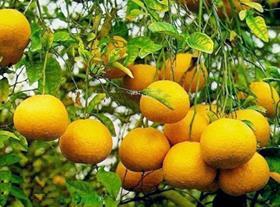
Pakistan’s citrus export prospects have improved as production is up and exporters anticipate sending larger shipments to an expanding foreign market, reports www.dawn.com.
Exporters expect kinnow shipments to generate US$200m this season, up from about US$175m last year, as they see a real boost in orders from Indonesia, Russia and elsewhere, said the report.
During a week-long visit to Indonesian cities last month, a 15-member delegation of the Sargodha Chamber of Commerce and Industry found that demand for kinnow is rising.
Kinnow exports to Indonesia surged last year after a mutual recognition agreement on sanitary and phytosanitary measures for agricultural products became effective. On top of that, the recent preferential trade agreement between the two countries should continue to boost exports to Indonesia.
Meanwhile, the Russian ban on imports of fruits and vegetables from the US and the EU is also fuelling optimism among kinnow exporters, who believe that the ban will eventually benefit fruit and vegetable exporters of Pakistan and other Asian nations.
Exporters also expect larger orders from Malaysia, UAE, Saudi Arabia and other GCC nations, in addition to some European countries, because of improved processing, grading and packaging of citrus fruits.
Officials began surveying kinnow farms in Punjab from early October. The survey is aimed at identifying the farms eligible for certification and standardisation for EU markets.
A higher projected production of 2.1-2.2m tonnes, up slightly from last year, is sure to enhance export volumes, Pakistan Horticulture Development and Export Company officials told the website.
Final official figures for last season’s exports are not available, but exporters claim they surpassed the target of 300,000 tonnes and that actual shipments will reach 400,000 tonnes.
However, the industry is concerned that Pakistan’s kinnow output is not increasing despite an expansion in acreage.
A recent survey suggests this is down to nutrient-deficient soil and pests that growers have no financial means to combat.



